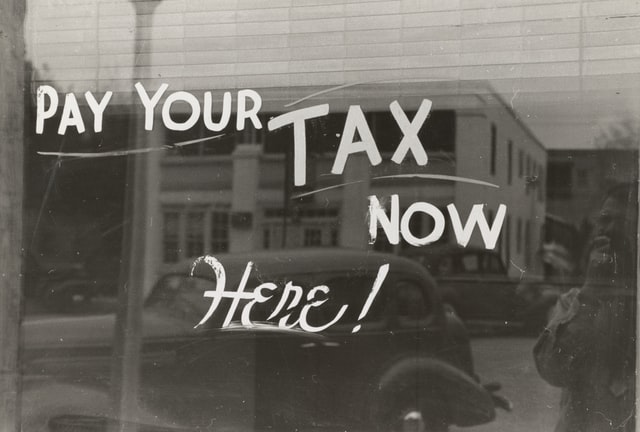Guide to ex-pat taxes in the US
Working abroad comes with a lot of different challenges. Moving abroad, finding a new job and other exciting things sometimes make people forget about certain things in the home country. And one of them is the tax system. Understanding the tax system, especially as a US ex-pat, can be really confusing. That’s why you should continue reading – we’ve made a guide to ex-pat taxes in the US to help you understand it better and avoid problems.
Do you need to file taxes?
Many people wonder if they should file US taxes even when receiving income from another place. The answer is – yes. You should file a tax return every year if your income is more than the amount determined as an income threshold. Income can be your salary or wages
but also rental income, dividends, interest, etc. The rule applies to any type of income, with some differences in terms of the filing status. For example, if you’re unemployed, the threshold is $400, irrespective of the type of income and filing status. However, for others, be sure to check that amount, as it can vary.
Why file US taxes?
If you go abroad and start working there, you might think there’s no need to worry about your taxes in the US. However, that’s not the case. Even though you haven’t filed taxes for a while, you can decide to move back to the US. That’s when the system notices your ‘gap’ and will probably require you to pay for all that time.
Differences between states in terms of ex-pat taxes in the US
When it comes to the tax system, US states are very different in their rules and fees. Your tax filing can be easy and inexpensive or very burdensome and complicated, depending on where you come from. Let’s see what your options are here.
Favorite states among ex-pats
When you ask ex-pats where it’s best to live and avoid ex-pat taxes, they will undoubtedly say Texas. Six other states don’t collect tax, both from residents and ex-pats. These include Wyoming, Nevada, Washington, South Dakota, Florida, and Alaska. Furthermore, two states collect tax only from dividends and interest – Tennessee and New Hampshire. This makes these two favorites among expatriates as well. That’s why if you consider working abroad, it’s best to move to one of these states first and then leave the country.
States considered difficult
Taxes are not as cool and simple everywhere as in the states we mentioned before. Some places in the US make it harder for their residents and go for every bit of the owed tax. Probably the least favorable states for ex-pats are Colorado, New Mexico, South Carolina, and Virginia. They also call them the ‘sticky states’ – apart from paying taxes for your abroad income, they make it very difficult to leave. Therefore, many ex-pats decide to move to another state first before leaving the country. And if you’re one of them, contacting New Leaf Moving Group should be the first step. You’ll need someone to take care of your belongings while you’re dealing with the paperwork, change of address, and other moving details.

States that are ‘in the middle’
The states that we haven’t mention before belong to the group of ‘neutrals’. This means they are neither here nor there. You’ll still have to pay some taxes unless you prove the residency in some other place, which is not too difficult in these states.
Interstate move is not complicated
Let’s say you have decided to take advantage of a different state’s tax system and relocate. For example, you want to leave Florida and become a resident of Texas before eventually going abroad to develop your career. This step doesn’t need to be a burden and additional stress before leaving the country. If you plan it carefully, and more importantly, trust professionals to help you out with it, you can have a smooth interstate move and start a new life chapter with ease.
Documents you need to file taxes
Be sure to prepare all the necessary documents as an ex-pat filing for taxes. Having all the paperwork ready will make sure you go through the process much faster. Documents you need are related to your income, basic information, and deductions. In detail, these papers include:
- income – wage reporting forms, records of all earnings, dividend/interest income reports, the purchase price of any property you’ve bought or sold, and statements about any stocks or securities you’ve bought or sold. Also, you’ll need to prepare documentation about any withdrawals from a retirement fund, pension, or IRA.
- basic information – here, you’ll need to fill in a questionnaire you can get from your tax preparer. Also, be sure to write down the dates you traveled abroad and the number of days you stayed there. The travel time is necessary to check if you qualify as an ex-pat. And finally, prepare info about your last year’s file, so they could compare and see if there are any drastic changes.
- deductions – several things will earn you deductions. These include student loans, interest in the house mortgage, overseas housing, being a dependent, etc. If you fall under any of these categories, prepare the proof to make the process smoother.

Get help from a professional
Ex-pat taxes in the US are often confusing and can get pretty costly. That’s why trusting a tax professional is the best way to go. This way, you can find out more details about your specific situation, check the rules and obligations, and be well-prepared for the tax-filing task



Leave a Reply